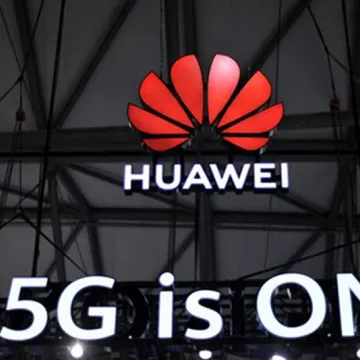Kenya's homes and offices make a steady shift to the fast lane

Whether its college students streaming lectures or parents keeping a close watch on their children at home via a video call, or an SME relying on the internet to transact via the cloud, access to stable data services is emerging as a vital cog in powering modern Kenya.
For millions of enterprising Kenyans, access to a reliable internet service is fast evolving into a vital need just as access to water and electricity.
Whether its college students streaming lectures or parents keeping a close watch on their children at home via a video call, or an SME relying on the internet to transact via the cloud, access to stable data services is emerging as a vital cog in powering modern Kenya.
The latest data from the Kenya National Bureau of Statistics (KNBS) shows that the uptake of high-speed broadband is on the rise, with connections above 100 Mbps increasing over eighteen-fold to 178,326 Gbps, further reinforcing the country's "transition towards high-capacity, data-driven infrastructure."
Similarly, tech giant Safaricom's financial disclosures for the trading period ended 31st March 2025, demonstrate that the usage of data by both individuals and businesses is rising, with deepening access and affordability, as well.
With over 30 million active customers, Safaricom reported a 15.2 percent increase in mobile data revenue during the year to close at KES72.86 billion, signalling the telco's expanding role as the nerve centre of a data-driven economy.
During the 12-month period, the telco reported a 13.9 percent YoY increase in the average usage per chargeable mobile data subscriber to close the year at 4.22GB, as Kenyans shift to a life highly dependent on fast digital services to stay connected, work and play.
"We are proud that we have transitioned into a purpose-led technology company even as we set our focus on achieving our next ambition of becoming Africa’s leading purpose-led technology company by year 2030," stated Safaricom Plc CEO, Dr. Peter Ndegwa, during the release of the company results.
Customers experienced a relief in the changing digital ecosystem, with the charge per megabyte dipping by a 3.3 percent to KES6.19. This relief was attributable to a 10.1 percent uptick in volume, that is, mobile data Average Revenue Per User (ARPU), which increased to KES267.11.
At the same time, the Nairobi Securities Exchange-listed firm's one-month active users surged by 11.2 percent to 30.69 million with the customers using over 1GB of data per month rising by 18.1 percent to 11.86 million. The company attributed this performance to continued uptake of its 4G and 5G variety of smart devices.
During the year, smart devices running on Safaricom network hit 27.37 million, reflecting a 19.4 percent increase even as 4G devices increased to 22.31 million or a 32.4 percent jump compared to the previous financial year.
Disclosures show that device capability is increasingly informing data usage with Safaricom analysis showing that about half or 49.4 percent of the telco's data customers using over 1GB every month own 4G gadgets.
And with increasing usage of 5G smartphones in Kenya for gaming, virtual conferences, and high quality movie streaming, the company is equally future-proofing its business model by tapping into this emerging segment. In FY2025, devices running on 5G surged by 57 percent to 1.05 million.
Currently, as the need to stay connected for work, studies or entertainment grows, mobile data is cementing its position as a key plank of the telco, accounting for 20 percent of its service revenue in the country.
Business connectivity
Under the company's Fibre to the Home (FTTH) segment and connectivity to business premises, the number of customers went up by 21.3 percent during the year to 301,451. At the same time, connected homes expanded by 36.3 percent to just over 507,000.
While the data reflects the rising need for connectivity in modern Kenyan homes, the firm's reported 17.5 percent expansion in corporate data customers to about 70,000, a pointer to rising adoption of data in the country's economic activities.
Currently, broadband connectivity to enterprises and links to homes account for a healthy 5 percent of Safaricom's revenue in Kenya.
Safaricom's growth in data connectivity mirrored expansion in the national outlook with the 2025 Economic Survey showing that fixed internet subscriptions in Kenya experienced increase, with fixed fibre-optic subscriptions rising from 834,900 in 2023 to 1,067,000 in 2024.
KNBS said this increase was the "fastest-growing segment among fixed services" in East Africa's largest economy.
"As we aim to become the financial services partner of choice for customers, enterprises and the public sector. We are continuously enhancing our digital ecosystem to offer innovative financial services solutions that meet the evolving needs of our customers," noted CEO, Dr. Ndegwa.
As the years ahead for enterprising Kenyans look set to be defined by affordable internet access and connectivity, the tech giant is aligning itself, partnering with other players to provide affordable 4G devices as part of a broader plan to plug the digital divide.





